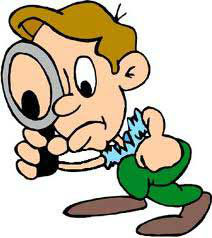Swiss franc farce may be gold price tipping point
Post# of 23216

Frik Els | January 21, 2015
Swiss franc farce may be gold price tipping point Image: Generation Grundeinkommen 2013
The past policies of the Swiss National Bank towards gold backfired badly. But last week's fiat money fiasco could be the real game changer
A referendum in November to force the Swiss National Bank to hold 20% of its reserves in gold, bring back any bullion held outside its borders and halt all sales, failed to garner the necessary vote after serious lobbying by the central bank of the European nation.
But the SNB's surprise announcement that it's ending its cornerstone monetary policy in place since September 2011 – pegging the franc against the euro at 1.20 – may now be doing more for the prospects of the metal than a yes vote in the poll would have.
Switzerland was late coming off the gold standard and as recently as 1999 its constitution required the franc to be 40% backed by gold. Then, in the years following the scrapping of the provision, the SNB went on a selling spree.
Swiss franc farce may be gold price tipping point
Image: Generation Grundeinkommen 2013
The bank sold an average of one tonne of gold each day for five years – at prices ranging from $300 an ounce to $500 an ounce.
Since instituting the franc-euro peg which compelled the SNB to buy euros on the open market to stop the franc from appreciating, Switzerland's foreign reserves ballooned by 60% reaching half a trillion francs (at today's rate $570 billion).
Because the bank had to suck up all that paper money, gold's share of the country's reserves fell to only 7.5%.
After announcing its is no longer defending the exchange rate regime, the franc shot up 30% against the euro – as many have pointed out, that was a a bigger currency move than the end of the gold standard.
Now that the dust has settled (somewhat) the franc continues to trade 17.5% stronger against the euro (and 16% against the dollar for that matter).
The bank sold an average of one tonne of gold each day for five years – at prices ranging from $300 an ounce to $500 an ounce
Some 45% of Switzerland's reserves were held in euros and another nearly 30% in US dollars – holdings that are now worth billions and billion less than a week ago.
On Thursday the European Central Bank will almost certainly announce its own version of quantitative easing – an unconventional monetary policy tool to create money by buying sovereign bonds. The third round of QE in the US ended in October after expanding the US Federal Reserve balance sheet by almost $4.5 trillion.
The ECB's version – at least the first round, possible of many – is expected to be more modest with of roughly $800 billion worth of easy money pumped into financial markets over the next year or so.
That can only lead to a still stronger franc against the euro and a further fall in the country's forex reserves. The SNB may have dropped the peg precisely because it would no longer be able to defend the franc with the euro printing presses going into overdrive.
Before last Thursday's bombshell, the SNB – one of the G7 central banks that are at the centre of global monetary policy making – said it would protect the forex regime with "utmost determination".
German website Goldreporter asks whether the SNB will now buy gold in order to raise the gold ratio of its foreign currency reserves and "to demonstrate the new self-determination of Swiss monetary policy and ramp up its risk precautions."
Clearly when it comes to fiat currency "utmost determination" isn't enough.
With its credibility blown and the fact that its past policies towards gold backfiring badly, has the bank – and by extension the rest of the world's central bankers – finally learnt the lesson?
And will paper no longer beat rock?
 (0)
(0) (0)
(0)NASDAQ DIP and RIP
Here is the best word that describes what i do here.
Intuitive;
means having the ability to understand or know something without any direct evidence or reasoning process.
I was born with it, I'm truly blessed!
Alway's searching for winners'
